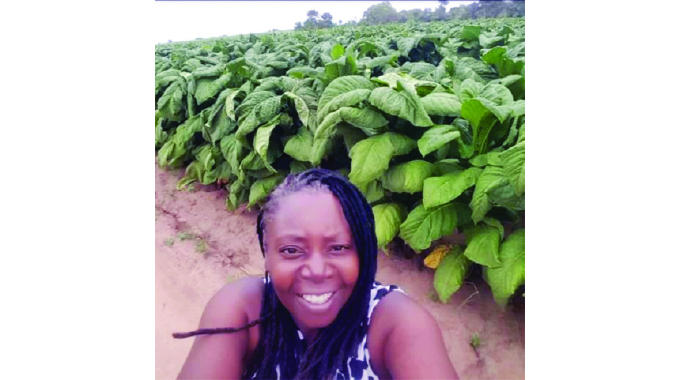
Conrad Mupesa
Mashonaland West Bureau
Women involved in agriculture are defining the success story of the land reform programme, with many doing well and contributing significantly to food security for the nation.
Land reform corrected colonial imbalances in the ownership of the means of production by giving back land to locals who were pushed out from their fertile land by white settlers.
Mashonaland West province, whose main economic drive is anchored on agriculture and mining, was affected in the initial stages as the new farm owners started learning the ropes of commercial farming.
More than two decades on, the province now boasts many farmers who have quickly learnt commercial farming and have now established themselves, doing extremely well.
Notably, female farmers are rising fast to the levels unmatched by their male counterparts in farming and have continuously contributed to food security.
One such woman is prominent commercial farmer, Ms Nomhle Mliswa, whose farm is located roughly 20km from Mhangura town along Doma Road in Makonde district.
Ms Mliswa, who has entered into a five-year partnership with firms — MS Farming, PHI Commodities and Tinotenga Mombe Sansaveria Investments (Pvt) Ltd — which are using 220 hectares of arable land at the 345 hectare farm, has been producing tonnes of potatoes annually, in addition to soyabeans and maize.
The total arable hectarage has been used up this season, with 153ha under maize, 18ha for soyabean and 50 hectares under sugar beans.
Ms Mliswa, together with her partners, also made use of a nearby dam to do winter agriculture, particularly for wheat and maize and, hopes to put a large tract under wheat if the rains continue to be generous to fill up her water reservoir.
“We hope to grow more wheat and potatoes in winter,” she said.
“Dams around this area have not yet reached full capacity, but our plan is to do all year round farming.”
Ms Mliswa said the partnership she entered into has allowed her to understand commercial farming through cross-pollination of ideas and expertise from her partners, including the availing of new and versatile farming technology.
“Apart from commercial crop farming, I also wish to tap into aquaculture,” she said.
“By this I intend also to teach and show women that they are capable of doing anything in farming, only if they have the zeal and dedicate their time.”
Ms Mliswa said contrary to the Government’s land reform programme critics, women were taking the centre-stage in farming.
“I’m a role model who wishes to see other women being motivated and empowered by what I do,” she said.
“My participation and encouragement have seen many women organisations come and learn at my farm.”
Ms Mliswa has plans to invest in drones to monitor her farming activities, continue the smart way of agriculture and promote farm tourism.
Ms Zandile Maseko of Carlton Carlou Farm in Treelawney under the Zvimba district is another female farmer who has many success stories under her belt.
The 55-year-old tobacco farmer was nominated for the provincial tobacco farmer the year for consecutive years.
She has entered into a smart agriculture partnership with a tobacco farming expert, Joe Pistorious (77), whom she says has improved her knowledge of golden leaf farming.
“I would like to thank the Government of Zimbabwe for allocating me land,” she said.
“I have managed to take care of all my children and all are university degree holders through my farming activities.
“I decided to come back to Zimbabwe from the United States when the land reform programme kicked off. I told myself that although the West had constructed a different notion and understanding of the whole programme, it was us the Zimbabweans who held the power to change the narrative and here we are as women defining the land reform.”
Apart from her 140ha farm, Ms Maseko leases other pieces of land from neighbours.
Of her 50 hectares under tobacco, 30ha were irrigated, while 20ha were rain-fed.
Ms Maseko also has maize and sugar beans, and poultry projects including pigs and chickens.
Ms Maseko, who employs at least 100 workers and is expecting not less than 5 000kg of tobacco, encouraged other women in farming to be aggressive and venture into partnerships. She has also outmatched most men in the male-dominated sector by introducing a smart tobacco curing system at her farm where she uses coal and electricity.
Many tobacco farmers are still using firewood, causing mass land degradation and deforestation.
Women, Ms Maseko said, were living up to their billing, proving the notion that “what men can do, women can do better”.
